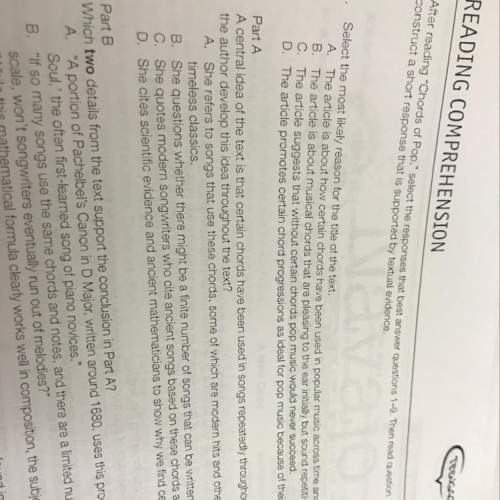
English, 13.03.2022 23:00, yolo123321
Memories of a Memory
Have you ever witnessed something amazing, shocking or surprising and found when describing the event that your story seems to change the more you tell it? Have you ever experienced a time when you couldn't really describe something you saw in a way that others could understand? If so, you may understand why some experts think eyewitness testimony is unreliable as evidence in scientific inquiries and trials. New insights into human memory suggest human memories are really a mixture of many non-factual things.
First, memory is vague. Imagine your room at home or a classroom you see every day. Most likely, you could describe the room very generally. You could name the color of the walls, the floors, the decorations. But the image you describe will never be as specific or detailed as if you were looking at the actual room. Memory tends to save a blurry image of what we have seen rather than specific details. So when a witness tries to identify someone, her brain may recall that the person was tall, but not be able to say how tall when faced with several tall people. There are lots of different kinds of "tall."
Second, memory uses general knowledge to fill in gaps. Our brains reconstruct events and scenes when we remember something. To do this, our brains use other memories and other stories when there are gaps. For example, one day at a library you go to quite frequently, you witness an argument between a library patron and one of the librarians. Later, when telling a friend about the event, your brain may remember a familiar librarian behind the desk rather than the actual participant simply because it is recreating a familiar scene. In effect, your brain is combining memories to help you tell the story.
Third, your memory changes over time. It also changes the more you retell the story. Documented cases have shown eyewitnesses adding detail to testimony that could not have been known at the time of the event. Research has also shown that the more a witness's account is told, the less accurate it is. You may have noticed this yourself. The next time you are retelling a story, notice what you add, or what your brain wants to add, to the account. You may also notice that you drop certain details from previous tellings of the story.
With individual memories all jumbled up with each other, it is hard to believe we ever know anything to be true. Did you really break your mother's favorite vase when you were three? Was that really your father throwing rocks into the river with you when you were seven? The human brain may be quite remarkable indeed. When it comes to memory, however, we may want to start carrying video cameras if we want to record the true picture.
Which words from the text describe what our brains use to fill in gaps in memory?
Blurry image
General knowledge
Individual memories
True picture

Answers: 3
Other questions on the subject: English

English, 21.06.2019 22:00, noglapotato
Composition about "the day i ran away" with 500 words
Answers: 1

English, 22.06.2019 04:00, yungdaggerdic4543
Read this passage: byron and mitch are co-captains of the mathletes, their high school's academic team. they are backstage with the five other team members, preparing to compete in the state math quiz. byron sits on the floor with his eyes closed and his earbuds in, listening to classical jazz, which him focus his mind and energy. suddenly, he feels a presence beside him. he opens his eyes to see mitch staring at him. "mathletes! mathletes! " mitch chants loudly. mitch gives byron a thumbs-up and then proceeds to strut around like a peacock, high-fiving the other team members, as byron shuts his eyes again and does his best to refocus his mind which statement best summarizes the passage?
Answers: 2

English, 22.06.2019 04:30, ivanlopez9852
Around, blank character is one who changes and grows as a result of the conflict in the story.
Answers: 1

English, 22.06.2019 05:30, Jana1517
Me? which of the following describes theodore roosevelt’s ideas about the role of the government? a) to keep the powerful from taking advantage of small business owners b) to all citizens get rich and to take care of the lazy c) to break all company trusts because all big businesses wanted to bully the smaller ones d) to close off all wild lands and leave them untouched
Answers: 2
Do you know the correct answer?
Memories of a Memory
Have you ever witnessed something amazing, shocking or surprising and found w...
Questions in other subjects:



Mathematics, 02.03.2021 03:10


Physics, 02.03.2021 03:10


English, 02.03.2021 03:10


Mathematics, 02.03.2021 03:10







